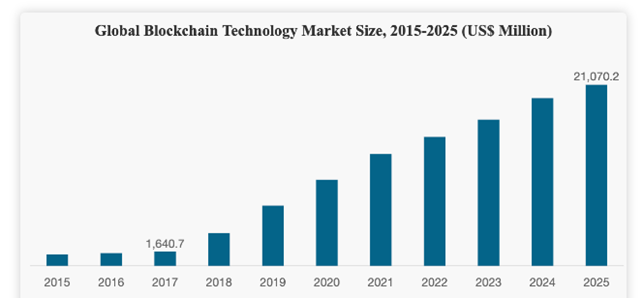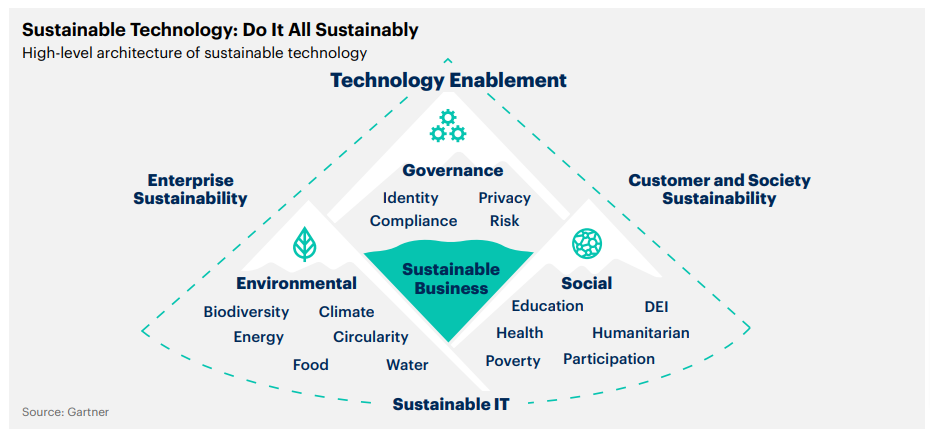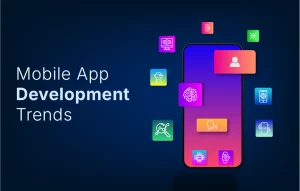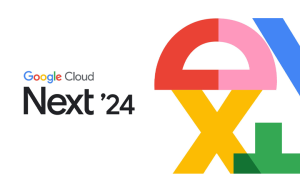In recent times, several technologies have been facilitating the growth of businesses and pushing their potential. This has allowed organizations from various industries to reach new heights. However, the dynamic world demands advancement in technologies to meet the ever-changing consumer demands.
We witnessed many new tech trends in 2022. Let’s check out some of the latest trends that will change the technology paradigm for the future.
Top technology trends to make you future-ready
Hyperautomation
Hyperautomation refers to multiple technologies like artificial intelligence (AI), machine learning (ML), robotic process automation (RPA) and more. Currently, most organizations are using this business-driven approach to quickly identify and automate legacy business processes. Leveraging hyperautomation you can reap the following benefits:
- Accelerate complex workflows
- Deploy digital workers
- Focus-driven business ecosystem
- Boost productivity
- Better resource management
A McKinsey report revealed that 2.6 trillion work hours are automated in the United States alone.
The year 2023 will see growth in the adoption of hyperautomation technology as more and more organizations are looking to improve compliance and security initiatives with RPA implementation. With this technology, businesses can capitalize on the data collected and generated by automated digitized processes. Moreover, they can analyze that data to make better and faster business decisions.
Metaverse
An immersive digital world where individuals can interact with each other through their desired avatar – if this isn’t the future, we don’t know what is. Metaverse certainly has created a lot of buzz this year; but to be truly adopted globally, it still needs to be more mature. With technologies like AR, VR and MR, companies are exploring the opportunities that can be created by the metaverse.
Read more about the impact of the metaverse on various industries.
Leaders in industries like retail, arts, healthcare, blockchain and more are determining how to position themselves as critical players in this emerging ecosystem. Manufacturers can improve product quality by leveraging digital twin. Retailers can sell their products virtually in the metaverse for the avatars of people. They can also sell the physical products through the metaverse once the buyer has tried it on their avatar. Even the real estate industry is looking for opportunities to rent and sell virtual spaces in the metaverse. The future looks immersive!
Blockchain
Decentralization of the network, security and confidentiality of data are some of the characteristics of blockchain that have made it popular in recent years. Currently, finance, payment systems and retail are actively using this technology. However, with the rise in the metaverse, blockchain will soon become adaptable by most industries.

Source: statistsa
Some of the reasons for its growth in the future can be:
- Increase in virtual investment volumes
- Reducing operating costs
- Increased demand for secured transactions in logistics and commerce
Industry cloud platforms
Industry clouds offer cloud services that are purpose-built for a specific industry, such as retail, insurance, banking, healthcare, manufacturing and so forth. The purpose of the industry cloud is to provide vertical integration and vertical solutions rather than horizontal ones. This means that industry clouds focus on creating more value within the constraints of the industry in which it is used rather than expanding the breadth of that industry.
By 2027, more than 50% of enterprises will use industry cloud platforms to accelerate their business initiatives. – Gartner
Industry clouds aim to digitalize businesses, one use case at a time. This allows organizations to scale their applications efficiently. Industry clouds offer the following benefits:
- Innovation with speed
- Agility
- Shorter deployment cycle times
- Improved compliance
- Better change management
Data fabric
Disparate data sources and unstructured datasets are the main reasons behind the development of data fabric. Fabric technology offers centralized access to data and resources.
The global data fabric market is projected to grow from USD 1.71 billion in 2022 to USD 6.97 billion by 2029. – Fortune Business Insights
Data fabric infrastructure enables efficient data management solutions from data governance to analysis. It unifies disparate data systems, embeds governance as well as strengthens security and privacy measures. Moreover, it offers data accessibility to business users in real time.
While businesses operate on various data systems like ERP and CRM, they face challenges in managing and integrating these data in a unified manner. However, with data fabric solutions, companies can view this data more cohesively to better understand the connections between them and gain meaningful insights.
Explainable AI
Explainable AI (XAI) describes an AI model, its impact, potential biases and the reasoning behind the output that it offers. It is imperative, in this dynamic world, to understand how an algorithm derives a result.
Explainable AI assures increased accuracy of models by 15% to 30%. – Forrester Research
XAI model allows decision-makers in organizations to gain trust in the algorithm and its predictions. It eliminates the alleged black boxes and clarifies broadly how the decision was made.
Conclusion
Intelligent systems, data-first approach, immersive experience and more – these trends might not be new, but their implementations and use cases are. The post-pandemic world definitely needs such a stack to boost the business growth of any organization.
With these technology trends, companies will be ready to face the future head-on. Additionally, there is a demand to make these technologies environmentally sustainable. This allows for an increase in the energy and material efficiency of IT infrastructure and workplace services.

Customers and businesses are actively looking for green credentials. Moreover, the demand for sustainable technologies will significantly increase by 2023. Which tech trends of the past have you already adopted and which ones are you looking forward to? Talk to our experts to transform your business by leveraging these technologies.









